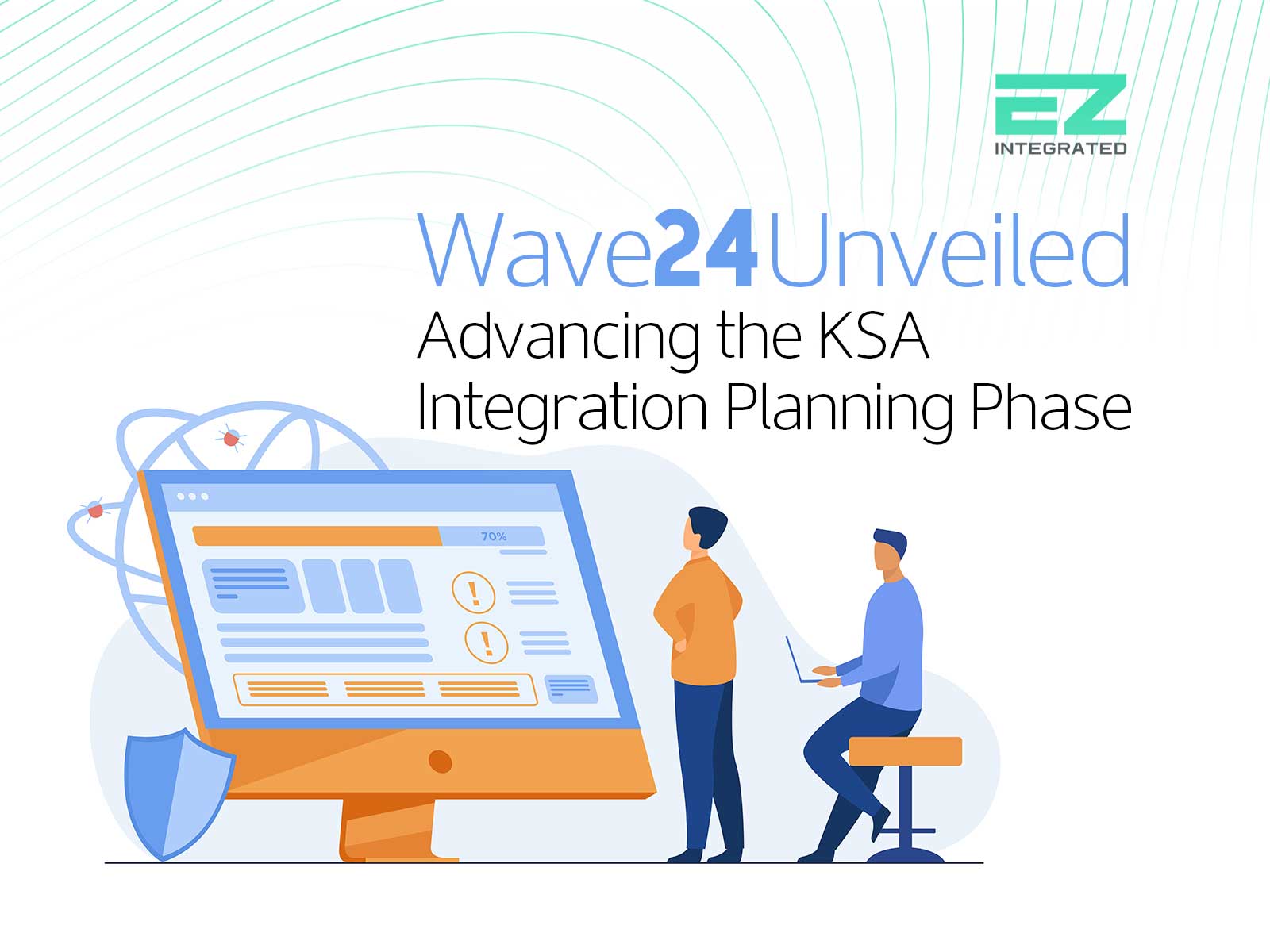The announcement of Wave 24 criteria marks a new milestone in the integration planning phase of Saudi Arabia’s e invoicing project. ZATCA has defined the selection rules for this wave, emphasizing that this stage reflects a strong move toward local digital transformation. It also demonstrates the Kingdom’s commitment to financial transparency and its Vision 2030.
In this article, we highlight ZATCA’s announcement of Wave 24 standards, explain the type of establishments involved, explore the requirements of the integration planning phase, and provide guidance for effective readiness.
The e Invoicing Journey in Saudi Arabia
Saudi Arabia’s e-invoicing journey began with the Generation Phase in December 2021. At that time, the focus was on eliminating paper invoices and replacing them with standardized electronic invoices that included mandatory elements such as the QR code.
The second stage, known as the integration planning phase, is broader and more advanced. It requires establishments to connect their systems with ZATCA’s FATOORA portal and ensure every invoice complies with the approved technical framework.
Wave 24 Criteria: What Type of Establishments Are Included?
ZATCA clarified that Wave 24 covers all establishments whose taxable revenue exceeded SAR 375,000 during 2022, 2023, or 2024.
According to Saudi classifications, this threshold primarily targets small and medium enterprises, while also including some micro-businesses that surpassed this limit.
Therefore, Wave 24 is not limited to large corporations. Instead, it covers a wide range of Saudi businesses that form the backbone of the local economy. These establishments must be ready for integration with the FATOORA portal before June 30, 2026.
Also read: Common Errors in Implementing ZATCA E Invoicing for SMEs
Requirements of the Integration Planning Phase
To fully comply with the integration planning phase, establishments must:
- Connect directly with the FATOORA portal to send and receive invoices in real time.
- Issue e invoices in a standard format approved by ZATCA.
- Include mandatory fields such as the unified invoice number and QR code.
- Ensure technical compliance with APIs for smooth system integration.
These requirements make the integration planning phase more advanced than the Generation Phase. Although they introduce technical challenges, they also bring significant operational advantages.
How Can Establishments Prepare for Integration?
Businesses included in Wave 24 need a clear readiness plan. The key steps are:
- Review current accounting and management systems to ensure compatibility with e invoicing solutions.
- Select a ZATCA-approved provider that guarantees full compliance.
- Train employees to use the new systems and manage the FATOORA portal effectively.
- Conduct early testing to avoid disruptions before the final deadline.
Early preparation ensures a smoother transition while minimizing costs and risks related to late adoption.
Also read: How to Perform E-Invoice Validation: Tips to Avoid Fraud
Economic and Digital Benefits of the Integration Planning Phase
Moving into the integration planning phase is not only about ZATCA compliance. It also delivers broader advantages such as:
- Strengthening transparency in Saudi business transactions.
- Increasing trust among customers and investors through secure invoices.
- Enhancing operational efficiency by reducing errors and saving time.
- Supporting Saudi Arabia’s digital transformation roadmap under Vision 2030.
EZ Integrated: Your Partner for Seamless Integration
With Wave 24 approaching, Saudi establishments need a trusted partner to ensure compliance. EZ Integrated, a ZATCA-approved solution provider, specializes in connecting e invoicing systems with the FATOORA portal.
Through technical expertise and continuous support, EZ Integrated helps small, medium, and large enterprises achieve a safe and efficient transition to the integration planning phase.
Contact us today for a tailored consultation and begin your integration journey in Saudi Arabia with confidence.
